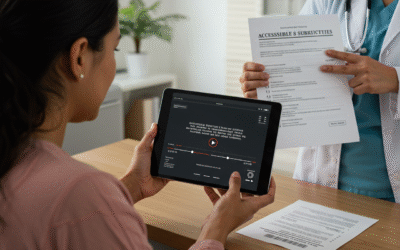In the U.S. healthcare sector, HIPAA compliance is crucial to ensure the privacy and security of patient information. Translation in this field must adhere to strict guidelines to comply with regulations and avoid penalties. Adapting translation processes to HIPAA compliance ensures that medical information is handled securely and accurately.
The Importance of HIPAA Compliance in Medical Translation
HIPAA compliance in medical translation protects Protected Health Information (PHI). This means that translators must handle sensitive data with high standards of confidentiality and security. Any data breach can result in legal consequences and damage patient trust.
Key Factors for Ensuring Secure and Accurate Translations
- Use of Secure Platforms: Information must be shared and stored in systems with data encryption and restricted access.
- Training for Translators: Translation professionals must be trained in HIPAA regulations to handle medical documents properly.
- Confidentiality Policies: Translators and agencies must sign confidentiality agreements to guarantee the protection of information.
- Verification and Quality Control: It is essential to have review processes in place to avoid errors and ensure the accuracy of the translated information.
- Compliance with Local Regulations: In addition to HIPAA, it is important to consider state-specific regulations that may affect the management of health information.
Impact on the U.S. Healthcare Sector
HIPAA compliance in medical translation impacts the relationship between patients and healthcare providers. Proper application of the regulations ensures that information is protected and that patients can access services in their language without compromising privacy. Additionally, healthcare institutions that comply with HIPAA avoid penalties and enhance their reputation.
Conclusion
Ensuring HIPAA compliance in translation within the U.S. healthcare sector is essential to protect patient information. Implementing security measures, training translators, and adhering to regulations allows for the provision of accessible medical services without legal risks. Adopting best practices in translation contributes to safer and more reliable healthcare.





